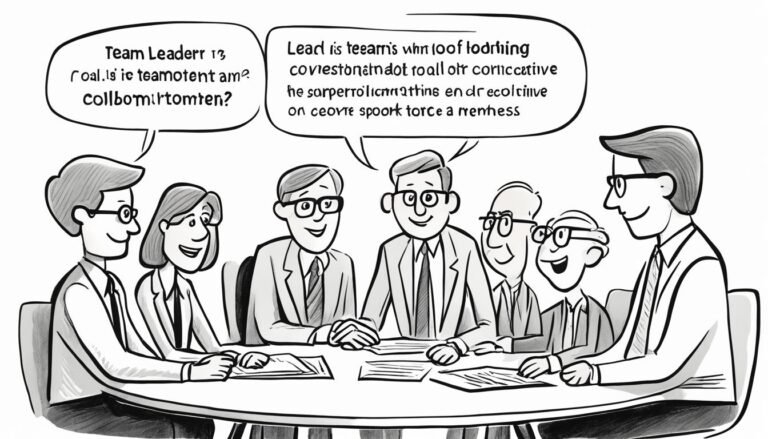Personality and Emotional Intelligence: Key Insights
Imagine a busy research lab at a top university. Dr. Elena Ramirez is a top scientist but has trouble working with her team. She can’t read social signals or control her feelings well. This shows how important personality and emotional intelligence are at work.
A big study with 7,463 Spanish researchers found something interesting. It shows that personality traits and emotional intelligence are closely linked. This study tells us how our personality affects our emotional skills, both for ourselves and others.
The study’s findings are quite surprising. It says that our personality can explain up to 50% of our emotional intelligence. This means our natural traits greatly influence how we handle emotions. For example, people who are open and outgoing tend to be more emotionally intelligent. This helps them get along better with others and understand themselves better.
The study also found that scientists have a unique personality. They are more open but less conscientious, outgoing, and stable than others. This shows that scientists need to work on their emotional intelligence to improve teamwork and communication.
Key Takeaways
- Personality traits significantly influence emotional intelligence
- Scientists have distinct personality profiles affecting their EQ
- Emotional intelligence explains 60% of job performance across industries
- Only 36% of people can accurately identify their emotions
- EQ strongly correlates with income and career success
- Self-awareness and self-management are crucial EQ components
- Journaling and mindfulness can help develop emotional intelligence
Understanding Emotional Intelligence (EQ)
Emotional intelligence, or EQ, is a key skill for success. It helps us understand and manage our feelings and those of others. This skill is vital for how we interact and achieve our goals.
Definition of Emotional Intelligence
EQ lets us see, understand, and use emotions to talk effectively. It’s more than just being friendly; it’s about handling social situations well and making smart choices. Surprisingly, only 10 to 15% of people are truly self-aware, despite what 95% think.
Components of EQ
Emotional intelligence has four main parts:
- Self-awareness: Knowing your own emotions
- Self-management: Keeping your reactions in check
- Social awareness: Getting others’ feelings
- Relationship management: Using EQ in interactions
Importance of EQ in Personal and Professional Life
EQ is vital in both our personal and work lives. At work, 71% of employers value EQ more than technical skills. It leads to better performance, leadership, and teamwork. It also helps manage stress, communicate well, and solve conflicts.
On a personal level, EQ boosts mental and physical health and improves relationships. Leaders with empathy do 40% better in coaching and decision-making.
“Emotional intelligence prepares individuals for real-world interactions by being aware of their own feelings and those of others.”
The Big Five Personality Traits
The Five-Factor Model of Personality is a well-known framework in psychology. It breaks down into five main traits: openness, conscientiousness, extraversion, agreeableness, and emotional stability. These traits influence our thoughts, feelings, and actions over time.
Research has found interesting links between these traits and emotional intelligence (EI). A study on Spanish university students showed that the Big Five traits explained 59.1% of the variance in Trait EI. Neuroticism was the strongest predictor.
Different groups show different connections between personality traits and EI:
- Swedish adults: Extraversion positively linked to global Trait EI
- Croatian and Slovene students: Extraversion and openness strong predictors of emotion management
- Malaysian students: Conscientiousness strongest predictor of Trait EI
- Nigerian teachers: Agreeableness and extraversion significant predictors
These findings show how complex the relationship between personality and emotional intelligence is across cultures. They suggest that working on certain personality traits could boost EI. This could lead to better social and professional outcomes.
Personality and Emotional Intelligence: Key Insights
Personality and emotional intelligence are closely linked. They shape how we see ourselves and interact with others. Recent studies have uncovered the complex relationship between these areas. This knowledge is valuable for personal and professional growth.
Relationship Between Personality Traits and EQ
Research shows a strong link between personality traits and emotional intelligence (EQ). A study with 210 participants found positive correlations between the Big Five personality traits and EQ. Here are the main findings:
| Personality Trait | Correlation with EQ | Significance Level |
|---|---|---|
| Extraversion | Positive | P < 0.05 |
| Agreeableness | Positive | P < 0.05 |
| Conscientiousness | Positive | P < 0.05 |
| Emotional Stability | Positive | P < 0.05 |
| Openness to Experience | Positive | P < 0.05 |
How Personality Influences Emotional Intelligence
Personality traits are key in emotional intelligence. The study showed 51% of participants had moderate EQ, and 49% had high EQ. Those who did well in school were more likely to have high EQ. This suggests a connection between academic success and emotional smarts.
The Role of Self-Awareness in EQ Development
Self-awareness is vital for emotional intelligence. It means knowing our emotions, strengths, and weaknesses. The study found abstractedness linked to other EQ scales. This shows the importance of self-reflection in emotional growth.
“Understanding oneself is the first step towards mastering emotional intelligence.”
By focusing on self-perception and awareness of our personality, we can improve our emotional intelligence. This helps us in both personal and professional settings.
The Impact of EQ on Workplace Performance
Emotional intelligence is key to success at work. Studies show that those with high EQ do better than others in many fields. This is true for salespeople and programmers alike.
In sales, those with high EQ make twice as much as others. A big financial company found that emotionally smart salespeople sell 18% more. This shows how EQ boosts job performance and productivity.
In tech, emotionally smart programmers work faster. They make software three times quicker than those with lower EQ. This shows EQ’s power in improving success in various fields.
Research shows a big difference in productivity between EQ levels. High-EQ workers can be up to 20 times more productive than low-EQ ones. This highlights EQ’s big impact on job performance.
| EQ Level | Sales Performance | Software Development Speed | Overall Productivity |
|---|---|---|---|
| High EQ | 2x revenue | 3x faster | Up to 20x higher |
| Average/Low EQ | Baseline | Baseline | Baseline |
As more companies see EQ’s value, its role in the workplace will grow. Experts say EQ will be six times more important in the next few years. This will make EQ even more crucial for success and productivity at work.
Developing Emotional Intelligence Skills
Emotional intelligence is key for success in life and work. Studies show that 90 percent of top achievers have high emotional smarts. Let’s dive into some important ways to boost these skills.
Self-Management Techniques
Learning to manage your emotions and stress is vital. Mindfulness helps you understand yourself better. It lets you handle your feelings well.
Being adaptable is also crucial. See changes and challenges as chances to grow.
Enhancing Social Awareness
Empathy is at the heart of social awareness. A global firm, DDI, says it’s the most needed leadership skill today. To grow empathy, listen actively.
Only about 10 percent of people listen well. Notice body language and try to see things from others’ viewpoints without judging.
Improving Relationship Management
Good communication and solving conflicts are essential for relationships. Work on your social skills by speaking clearly and respectfully. Learn to give and receive helpful feedback.
Remember, 95 percent of workers value empathy at work. By improving these skills, you can build stronger, more positive connections in your life and career.
- Practice emotional regulation daily
- Engage in active listening exercises
- Seek feedback to improve self-awareness
- Participate in team-building activities to enhance social skills
By focusing on these areas, you can greatly improve your emotional intelligence. It’s a journey that takes time and effort. But the benefits are huge.
EQ vs. IQ: Understanding the Differences
Intelligence quotient (IQ) and emotional intelligence (EQ) measure different aspects of human ability. IQ looks at thinking skills and school smarts. EQ is about feeling and social skills. Both are key to doing well in life and work, but in different ways.
IQ tests, like the Stanford-Binet Intelligence Scale, check thinking skills. People with high IQs often do well in school and make more money. EQ, on the other hand, looks at how well you handle feelings and social situations. It’s measured by tests like the Mayer-Salovey-Caruso Emotional Intelligence Test.
IQ helps you do well in school. But EQ is crucial for dealing with stress, making friends, and getting along with others. Daniel Goleman says people with good emotional skills live happier, more fulfilling lives.
“Emotional intelligence represents a third significant factor in school environments, alongside high intelligence and a conscientious personality.”
In jobs, IQ is key for tasks like engineering or accounting. But EQ is more important for jobs that involve people, like sales or counseling. Now, many employers value EQ as much as IQ when they hire.
IQ and EQ can be changed by things outside of us. What we eat, our education, and where we grow up can affect IQ. The same goes for EQ. How we’re raised, our experiences, and our culture shape our EQ. This shows why we need to work on both our thinking and feeling skills to succeed.
The Role of Affect in Emotional Intelligence
Emotional states are key to understanding and managing our feelings. This link between affect and emotional intelligence (EQ) is important for personal and work growth.
Positive Affect and EQ
Being in a good mood boosts our EQ. When we’re happy, we tend to:
- Empathize with others
- Communicate well
- Find creative solutions
- Handle social situations better
Negative Affect and EQ
Feeling stressed or upset can lower our EQ. In tough times, we might find it hard to:
- Know ourselves
- Control our emotions
- Interact well with others
- Make good decisions
It’s vital to manage our mood well to keep our EQ high.
Mediating Effects of Affect
Studies reveal affective emotions link personality traits to EQ. A study with 137 professionals showed EQ’s role in change attitudes, more than personality. This shows EQ’s value for personal and work growth.
“Emotional intelligence was identified to have a significant contribution to attitudes towards change, demonstrating its added value beyond the impact of personality.”
Knowing how affect influences EQ helps us manage our mood better. By focusing on positive emotions and handling negative ones, we can boost our EQ. This improves our life in many ways.
Measuring Emotional Intelligence
Since the early 1990s, emotional intelligence (EI) has been a big focus in psychology. EQ assessment tools have grown a lot, giving us insights into our emotional skills. Now, there are over 30 widely-used EI measures, each with its own way of checking emotional ability.
There are two main types of EI tests: ability EI and trait EI. Ability EI tests are like IQ tests, checking how well you understand emotions. Trait EI tests, however, use self-report questionnaires to see how you act in emotional situations.
The field of EI measurement is divided into three main areas:
- Stream 1: Ability measures based on Mayer and Salovey’s model
- Stream 2: Self-report measures derived from the same model
- Stream 3: Expanded models incorporating additional components
Studies show that people with high trait EI scores are very good at handling emotions. This has made many companies use EQ tests when hiring. They see it as key, along with technical skills.
Choosing the right EI measure depends on what you’re using it for. It’s useful for personal growth or for improving a team. Understanding and measuring emotional intelligence is a valuable tool for us all.
Emotional Intelligence in Leadership
Emotional intelligence is key for leaders. Since the 1990s, EI has been a big deal in coaching and studying how organizations work. Leaders with high EI know themselves well, understand others, and are great at working with people. These skills are vital in today’s complex business world.
EQ Competencies for Effective Leadership
Emotionally intelligent leaders shine in several areas:
- Self-awareness: They know their emotions and how they affect others.
- Empathy: They get and respond to their team’s feelings.
- Conflict resolution: They handle disagreements well.
- Decision-making: They make good choices, even when it’s hard.
- Relationship management: They build and keep strong work relationships.
Developing Emotionally Intelligent Leaders
Improving emotional intelligence takes ongoing effort. It involves:
- Self-assessment to find areas to get better at.
- Practicing self-regulation techniques.
- Building empathy by listening well.
- Improving social skills through communication.
- Managing stress and practicing mindfulness.
Case Studies of High-EQ Leaders
Studies link emotional intelligence to great leadership. Leaders like Carol Bartz and William George say EI helped them succeed. They are self-aware and empathetic, creating great work environments and inspiring their teams.
They understand body language and adapt to new situations. This makes them stand out in today’s fast-changing business world.
“Emotional intelligence is not just a nice-to-have for leaders; it’s a must-have for driving organizational success and fostering a positive work culture.”
Conclusion
Emotional intelligence (EQ) is key for personal growth and career success. A study with 296 general medicine students found interesting connections. For example, being more outgoing linked to less rational decision-making.
On the other hand, being agreeable and responsible led to more rational choices. This shows EQ’s role in how we make decisions.
EQ’s effect on work performance is clear. It helps in managing relationships, staying true to oneself, and personal growth. These aspects of EQ boost academic success. This means improving EQ can give you an edge in your job.
EQ also plays a big part in how we make decisions. It links conscientiousness and intuitive decision-making by 38%. It also connects extroversion and openness to experience with intuitive decision-making.
These findings show EQ’s complex relationship with personality traits. They highlight the need to develop both for the best personal and professional results.
Source Links
- Personality and emotional intelligence of researchers: The importance of affects
- Key insights from: Emotional Intelligence
- Improving Emotional Intelligence (EQ): Expert Guide
- Emotional Intelligence in Leadership: Why It’s Important
- 3 Simple Steps to Increase Your Emotional Intelligence
- Association between the big five and emotional intelligence | PRBM
- Frontiers | The Relationship Between Trait Emotional Intelligence and Personality. Is Trait EI Really Anchored Within the Big Five, Big Two and Big One Frameworks?
- Personality traits as a predictor of emotional intelligence among medical students
- Emotional Intelligence in the Workplace: Why It Matters More Than Personality
- How Emotional Intelligence at Work Impacts the Workplace
- How to Develop Emotional Intelligence Skills | HBS Online
- How to Improve Your Emotional Intelligence – Professional & Executive Development | Harvard DCE
- 5 Key Components of Emotional Intelligence
- IQ vs EQ: Why Emotional Intelligence Matters More Than You Think
- IQ or EQ: Which One Is More Important?
- EQ vs IQ – Difference and Comparison
- Emotional Intelligence And Personality: How One Affects Another
- The role of emotional intelligence and personality variables on attitudes toward organisational change
- Frontiers | The Measurement of Emotional Intelligence: A Critical Review of the Literature and Recommendations for Researchers and Practitioners
- The Measurement of Emotional Intelligence: A Critical Review of the Literature and Recommendations for Researchers and Practitioners
- Leading by Feel
- Emotional intelligence, leadership, and work teams: A hybrid literature review
- Emotional Intelligence in Leadership: Your Key to Success
- Personality traits, emotional intelligence and decision-making styles in Lebanese universities medical students – BMC Psychology
- Frontiers | Emotional Intelligence and Personality Traits Based on Academic Performance
- Conclusion / References








